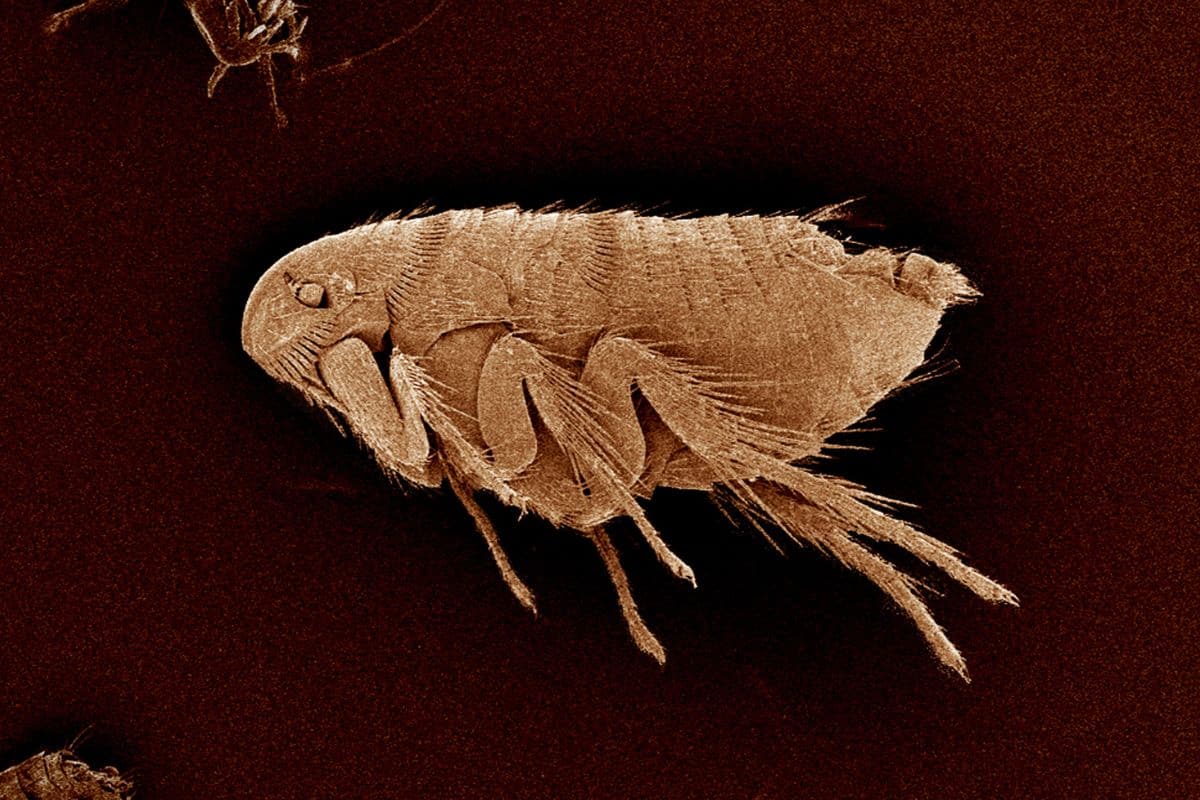Fleas are persistent pests that can cause significant discomfort for both pets and humans. Many homeowners wonder whether having hardwood floors might offer protection against these troublesome parasites. Let’s explore whether fleas can survive on hardwood surfaces and what you can do to keep your home flea-free.
Understanding flea behavior on hard surfaces
Contrary to popular belief, fleas can indeed live on hardwood floors. While they prefer to reside on hosts like cats and dogs, fleas spend approximately 80% of their life cycle off their hosts. Adult fleas may struggle to move efficiently across smooth wood surfaces, but they can certainly survive there.
Hardwood floors offer several hiding spots for fleas. These tiny parasites can inhabit the cracks and crevices between floorboards, making them difficult to eliminate completely. In older homes especially, wider gaps between boards provide perfect shelters for flea eggs and larvae.
The life cycle of fleas includes four stages: eggs, larvae, pupae, and adults. When female fleas lay eggs on your pet, these eggs often fall off onto flooring surfaces. While adult fleas need blood meals to survive, their larvae feed on organic debris found in floor cracks, including shed skin cells, food particles, and other detritus.
Interestingly, opossums, which sometimes enter homes and can carry fleas, have diverse eating habits that might indirectly contribute to flea problems. What do opossums eat can include insects and small rodents that might themselves harbor fleas, potentially introducing these pests to your living space.
Why fleas thrive despite hardwood flooring
Hardwood floors may seem inhospitable to fleas, but several factors make them suitable habitats. For one, relative humidity levels in homes often provide enough moisture for flea survival. Fleas require approximately 50-75% humidity to thrive, a range commonly found in many households.
Your hardwood floors might harbor fleas for these key reasons:
- Gaps and seams between floorboards provide shelter
- Dust and debris in corners supply food for larvae
- Area rugs and furniture on hardwood create ideal hiding spots
- Pet bedding on hardwood floors becomes flea hotspots
- Baseboards and moldings offer protected breeding areas
Flea pupae are particularly resilient and can remain dormant in floor cracks for months or even up to a year. They develop a protective cocoon that shields them from conventional cleaning methods and even some pesticides. These pupae will emerge when they detect vibration, heat, or carbon dioxide—signals indicating a potential host is nearby.
When dealing with household pests and cleaning challenges, it’s worth noting that some cleaning issues might seem unrelated but actually share common solutions. For instance, methods used for how to remove brown stains and limescale from toilets often involve similar acidic solutions that can help clean floor crevices where fleas might hide.
Effective strategies for eliminating fleas from hardwood floors
Ridding your hardwood floors of fleas requires a comprehensive approach targeting all life stages of these pests. Begin with thorough vacuuming of all floor surfaces, paying special attention to cracks, edges, and areas beneath furniture. Use vacuum attachments to reach difficult spots and dispose of the vacuum bag promptly in a sealed container.
Steam cleaning offers another effective method for eliminating fleas from hardwood floors. The high temperatures generated by steam cleaners kill fleas at all life stages, including the resistant pupae. However, use caution with steam on hardwood to prevent warping or damage to finishes.
After cleaning, consider applying food-grade diatomaceous earth to floor cracks and crevices. This natural powder damages the exoskeletons of fleas, causing them to dehydrate and die. Leave the powder in place for at least 48 hours before vacuuming it up.
For persistent infestations, you might need chemical treatments specifically designed for hardwood surfaces. Choose products containing insect growth regulators (IGRs) that prevent flea larvae from developing into adults, effectively breaking their life cycle.
Interestingly, some natural approaches to household problems can apply across different situations. For example, while discussing hollow heart potatoes might seem unrelated to flea control, both issues remind us that natural growing conditions and proper moisture management play crucial roles in preventing problems, whether in produce or pest control.
Preventing future flea infestations on hardwood floors
Prevention remains the most effective strategy against fleas on hardwood floors. Start by treating your pets with veterinarian-recommended flea prevention products. Regular bathing and grooming of pets also helps reduce flea populations before they can spread to your floors.
Maintain a regular cleaning schedule for your hardwood floors, including these steps:
- Vacuum thoroughly at least twice weekly
- Clean and wash pet bedding in hot water weekly
- Seal cracks in flooring to eliminate hiding spaces
- Reduce clutter that provides shelter for fleas
- Keep humidity levels in your home below 50%
Consider using natural repellents like cedar oil or lemon-based solutions that are safe for hardwood floors yet repel fleas. These can be applied as sprays or used in diffusers to create an environment fleas find uninviting.
Remember that consistent maintenance is key to long-term flea prevention. Even with hardwood floors, vigilance and regular preventative measures will keep your home flea-free and comfortable for both you and your pets.

